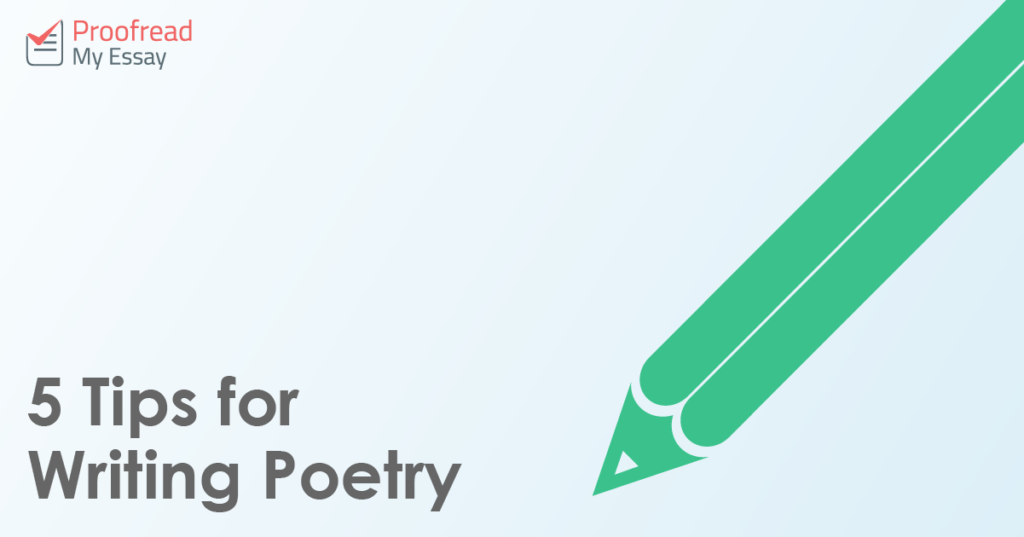If you’re the kind of person who wanders lonely as a cloud, you might have a poem or two inside you. And we’re here to help you get them out! Check out our top five poetry tips below for a little inspiration.
1. Pick a Style You Like
Poetry comes in many forms, from three-line haiku to epic sagas. You therefore have many stylistic options available to you when writing a poem.
A few well-known poetic styles include:
- Lyric poetry (poems that express emotions)
- Narrative poetry (poems that tell a story)
- Sonnets (14-line poems that follow a specific rhyme scheme)
- Shape poems (poems where the words create an image on the page)
- Limericks (short comic poems with a simple rhyme scheme)
If you’re not sure where to start, try reading lots of different poets. This will give you a better sense of which poetic styles you enjoy.
2. Celebrate the Ordinary
Sure, some poems are about fantastical things. But it’s just as possible to write about everyday life. In fact, some outstanding poetry is about stuff we might otherwise dismiss as boring.
Pick something from your own experience that you maybe take for granted – even something as simple as walking the dog or making a cup of tea – and explore your feelings about it. Think about how you can reimagine it using metaphor and simile. Turn the ordinary into the extraordinary!
3. It Doesn’t Have to Rhyme
Rhyme is a distinctive element of poetry. It may even be one of the first things you think of when you hear the word ‘poetry’. But poems don’t have to rhyme. And relying too heavily on rhyme can make a poem seem simplistic.
Find this useful?
Subscribe to our newsletter and get writing tips from our editors straight to your inbox.

Luckily, though, poems don’t have to follow any rules at all! There is even a term for poems that don’t have a rhyme scheme or a regular rhythm: free verse, which typically sounds more like natural speech.
The point is that while poems often use familiar techniques like rhyme, it is the poet (i.e. you) who decides whether and how to use these techniques. So be creative, even if it means breaking the rules.
4. Read Your Poetry Out Loud
Not all poetry is suited to reading out loud, but it can be a great way to get a different perspective on a work in progress. See how it sounds when you read it and whether that gives you any new ideas.
If you want a little support, you could even join a poetry workshop or writing group. The idea of reading your poetry in front of strangers might seem intimidating at first, but your fellow poets should make you feel welcome and the feedback you can get is invaluable.
5. Do Your Exercises
Like any skill, writing good poetry takes practice. It is therefore a good idea to try out some poetry writing exercises now and then, especially if you’re stuck for something to write about.
You could try writing a poem in the style of your favourite poet, for example, or you could experiment with different poetic techniques. The key is to keep writing and learning! And if you ever need any help editing or proofreading your poems, feel free to get in touch.



